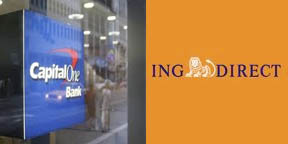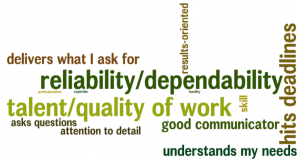I don’t really enjoy reading my fellow freelance blogs at times, because I sometimes run into things that make me cranky. For example, the use of the term “passive income”, which I just ran across again while doing some research on freelance stats and figures.
Do you want to know the rules about making passive income from your writing online? Do you want to learn how to earn more money by using the techniques of passive income?
I have bad news for you. There is NO SUCH THING as passive income. And I really can’t believe there are still active blogs out there pushing the idea like it’s the hot new thing. Aren’t we DONE with that notion yet?
Look at the picture to the left. All those flowers, growing like mad. Beautiful, aren’t they? Wouldn’t you just love to step out on the back porch and watch these swaying in the breeze? And what a life they have, just soaking up the sun, waiting for the rain. Passive. You could sell these flowers someday and make some easy money.
Except for all that planting, weeding, landscaping and soil treatment.
So-called passive income is the same. Sure, you can write an e-book and throw it out there for sale, a digital download that you never have to worry about again. Once it’s up and out the door, it’s just waiting to be purchased and studied.
But you’re competing with 2.8 million other non-traditional books (e-books included) as reported in 2010. People who publish hardcopy books actually have it easier–only 316,000 print editions came out in 2010 according to this Reuters article.
So if you want to make some sales, you’re going to need to market yourself. It’s you versus 2.8 million others. Don’t get discouraged by that, but do accept the reality.
The same is true for your “passive income” website with all those affiliate links, article marketing sites, etc. Passive? Hardly. All that cross-linking, Reddit spamming, StumbleUpon posts and other activities encouraged by the passive income people don’t add up to couch potato, do they? Nope, passive income is another one of those goofball phrases made up to sell people on an idea.
It’s not ALL downside though–I can say this, one thing people who try to engage in passive marketing soon learn about is networking, and that is a very important skill for freelancers to hone at all career levels. It’s easy to stay in your comfort zone with networking, forget that you need to swim with the sharks, and keep up with the latest trends.
Passive income can only be found one way, really…I’m off to indulge in that Quixotic weekly pastime later today–buying a lottery ticket rarely pays off, but if it ever does, it will be the first time in my freelance life I ever got money for doing nothing.
 Joe Wallace wears too many hats. He writes web content and manages social media for clients in the finance industry, he’s an avid record collector, vinyl blogger, and author of WTF Records: The Turntabling.net Guide to Weird and Wonderful Vinyl.
Joe Wallace wears too many hats. He writes web content and manages social media for clients in the finance industry, he’s an avid record collector, vinyl blogger, and author of WTF Records: The Turntabling.net Guide to Weird and Wonderful Vinyl.
He’s currently shopping for a publisher for the book and plans an official companion DVD when he finds a moment to breathe. His hobbies include writing bio blurbs about himself in the third person, collecting records too weird for most people, and eating sushi.
Contact him for assignments, to sell your record collection, or with an offer to be his agent: jwallace@joe-wallace.com






 y Jake Poinier
y Jake Poinier